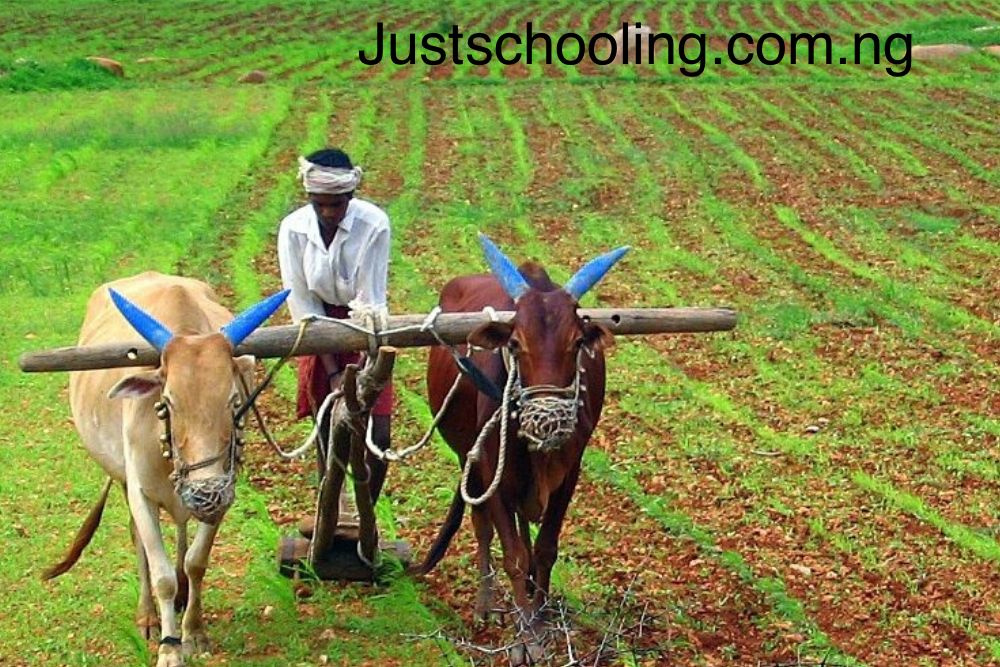Universities With the Lowest Cut-Off Marks for Agriculture in the Nigeria
Are you trying to find the list of Nigerian universities with the lowest cut-off mark required to get admitted to the agriculture programs? Read on to know Nigeria Universities with the lowest cut-off mark.
If you want to pursue a career in agriculture but are unsure about the most recent jamb cutoff mark for a course like agriculture .Here is a list of Nigerian institutions that have cut-off mark that we have verified; it is the lowest of all the universities in Nigeria that provide agriculture programs.
READ ALSO: List Of Universities That Has Lowest Cut-off Mark For Physical Science
Universities With The Lowest Cut-Off Marks For Agriculture In The Nigeria

To gain admission into an agriculture program at a Nigerian university, meeting the cut-off mark for the subject is essential. The following universities have some of the lowest cut-off marks for agriculture.
1. University of Jos (UNIJOS)
Cut off mark: 180
Because it is situated in Jos, a state in Nigeria’s Middle Belt Region, sometimes known as “J-town,” the University of Jos is able to take advantage of the meteorological conditions that are typical of this region. Unijos is located in a climate that is conducive to the cultivation of traditional Nigerian crops and livestock, and this support is provided by the climate. The fact that the state is one of the most sought-after vacation spots for tourists and expatriates is evidence that the weather conditions at the University are not completely harsh. This is clear from the fact that the state serves as a destination for vacations.
2. Ibrahim badamasi babangida university (IBBU)
Cut off mark: 170
Our ambition is global and our reach is national. IBBU draws students from all around the nation, including neighbouring nations, and a sizable portion of its student body is from both inside and outside of Niger State. IBBUL’s students, who are intelligent, observant, and driven to change the world, provide a great deal of its vitality. Here, being a student is difficult. We offer chances and leadership in general studies, entrepreneurship, research and teaching, and voluntary work. Excellent students from all backgrounds are admitted, and we support their growth and success.
3. University of Abuja
Cut off mark: 180
Known for its agriculture department, the University of Abuja typically sets a cut off mark level that is lower than other universities. Aspiring agriculture students with somewhat inferior academic marks now have an opportunity.
4. Kogi State University (Ksu)
Cut off mark: 170
Anyigba, which is located in Kogi State, Nigeria, is home to Kogi State University (KSU), which is a state-run university. The University provides a wide range of undergraduate and postgraduate programs, one of which being the College of agriculture. In this blog post, I will provide you with all of the information that you require regarding the minimum score required to be accepted into the agriculture program at Kogi State University.
READ ALSO: List Of Universities That Has Lowest Cut-off Mark For Genetics and Biotechnology
FAQS
What does agricultural means?
a field of study, an art, or a science that emphasizes the cultivation of the soil, the production of crops, and the raising of livestock, as well as, to varying degrees, the preparation and sale of the products that are created as a result of these activities. The ground was cleared in order to make it suitable for agricultural use.
Why is the word farming changed to agriculture?
During the time that the industry expanded from farming alone to encompass everything that agriculture encompasses, the credo also evolved. The term “farming” and “farmers” were replaced with “agriculture” and “agriculturalist” in their respective versions of the creed, which were changed in 1965 and 1990 respectively. In each paragraph, a different aspect of agriculture is discussed.
Why do we believe in the future of agriculture?
Because agriculture was the foundation upon which this nation was established and because it is essential to the nation’s survival, we ought to have faith in its future. From your perspective, what do you think the future of agriculture will bring for you? Agriculture is and will continue to be the core of the American economy. Farmers and agriculturalists were the pioneers who established our nation.
What is the biggest challenge with the future of agriculture?
When it comes to the future of agriculture, climate change is without a doubt the most significant challenge as well as the most significant opportunity. Given that food systems are responsible for approximately one third of the world’s greenhouse gas emissions at the present time, worldwide collaboration and innovation will be required in order to achieve a “net zero” food system.









